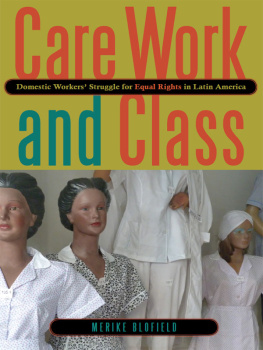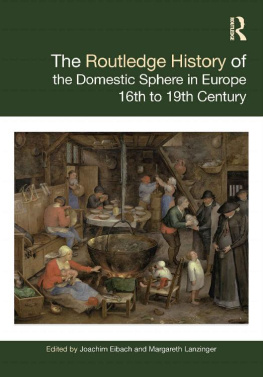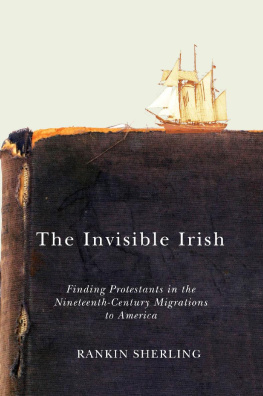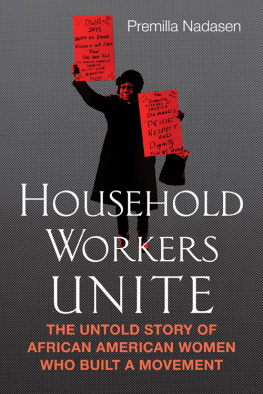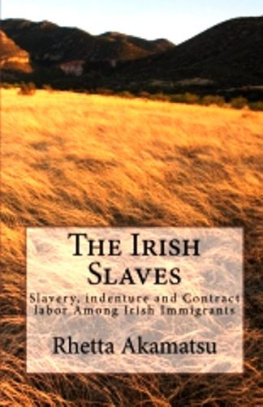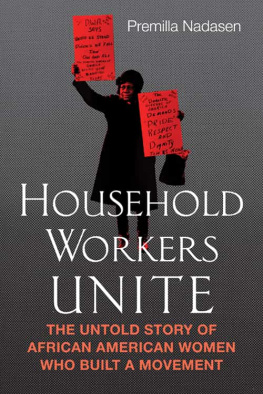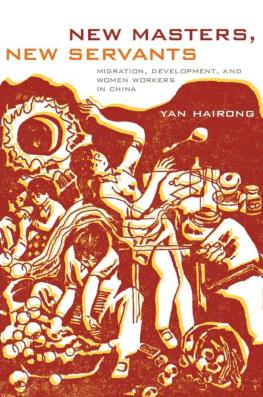Contents
Guide
Pagebreaks of the print version
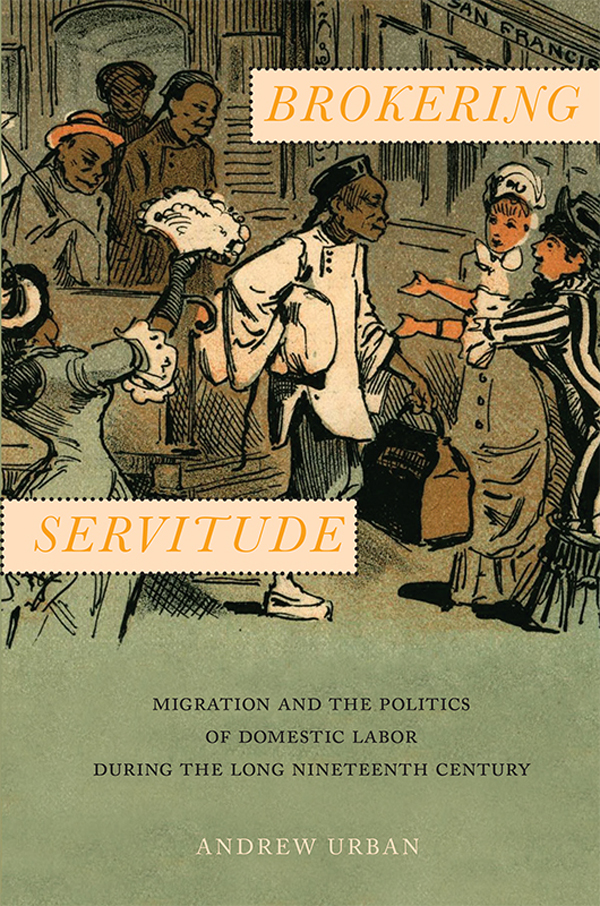
BROKERING SERVITUDE
CULTURE, LABOR, HISTORY SERIES
General Editors: Daniel Bender and Kimberley L. Phillips
Working the Diaspora: The Impact of African Labor on the Anglo-American World, 16501850
Frederick C. Knight
Class Unknown: Undercover Investigations of American Work and Poverty from the Progressive Era to the Present
Mark Pittenger
Steel Barrio: The Great Mexican Migration to South Chicago, 19151940
Michael D. Innis-Jimnez
Fueling the Gilded Age: Railroads, Miners, and Disorder in Pennsylvania Coal Country
Andrew B. Arnold
A Great Conspiracy against Our Race: Italian Immigrant Newspapers and the Construction of Whiteness in the Early 20th Century
Peter G. Vellon
Reframing Randolph: Labor, Black Freedom, and the Legacies of A. Philip Randolph
Edited by Andrew E. Kersten and Clarence Lang
Making the Empire Work: Labor and United States Imperialism
Edited by Daniel E. Bender and Jana K. Lipman
Whose Harlem Is This, Anyway? Community Politics and Grassroots Activism during the New Negro Era
Shannon King
Health in the City: Race, Poverty, and the Negotiation of Womens Health in New York City, 19151930
Tanya Hart
Trotskyists on Trial: Free Speech and Political Persecution since the Age of FDR
Donna T. Haverty-Stacke
Forging a Laboring Race: The African American Worker in the Progressive Imagination
Paul Raymond Din Lawrie
Suspect Freedoms: The Racial and Sexual Politics of Cubanidad in New York, 18231957
Nancy Raquel Mirabal
Brokering Servitude: Migration and the Politics of Domestic Labor during the Long Nineteenth Century
Andrew Urban
Brokering Servitude
Migration and the Politics of Domestic Labor during the Long Nineteenth Century
Andrew Urban

NEW YORK UNIVERSITY PRESS
New York
NEW YORK UNIVERSITY PRESS
New York
www.nyupress.org
2018 by New York University
All rights reserved
References to Internet websites (URLs) were accurate at the time of writing. Neither the author nor New York University Press is responsible for URLs that may have expired or changed since the manuscript was prepared.
ISBN : 978-0-8147-8584-3
For Library of Congress Cataloging-in-Publication data, please contact the Library of Congress.
New York University Press books are printed on acid-free paper, and their binding materials are chosen for strength and durability. We strive to use environmentally responsible suppliers and materials to the greatest extent possible in publishing our books.
Manufactured in the United States of America
10 9 8 7 6 5 4 3 2 1
Also available as an ebook
To the memory of my grandmothers,
Rose Rosenblum and Adelle Urban
CONTENTS
ACKNOWLEDGMENTS
The doctorate program in History at the University of Minnesota nourished me with a vital intellectual and activist community. I am grateful to Anna Clark and Doug Hartmann for all of their support and feedback. Kevin Murphy is a dear friend and role model. His commitment to the public humanities as a basis for critical social engagement continues to inspire me. My advisors Donna Gabaccia and Erika Lee put me on the right path, and their imprint can be seen throughout this book. I can only hope I have done justice to the education I received from them. To this day, I still count on both Donna and Erika for support and encouragement.
At Emory University, Leslie Harriss impact as a mentor cannot be properly qualified. The chance to work with the innovative Transforming Community Project was a formative experience.
There are so many colleagues and friends who helped me along the way. My apologies for any omissions. I would like to thank Isra Ali, Bob Barde, Al Barrion, David Brecher, Candace Chen, Frances Chen, Janna Emig, Heather Fife, Lucas Klein, Nelson Lichtenstein, Allison Lorentzen, Heather Lukes, David Madden, Jeff Manuel, Molly McGarry, David McNeill, Brighde Mullins, Peter Philips, Eric Richtmyer, Maggie Russell-Ciardi, Liz Sevcenko, Michael Sullivan, Evan Taparata, Julia Thomas, Katie Tsuji, Sue Urban, Amity Wilczek, and Aaron Windel.
Nicole Heater deserves a special line of thanks for the years of patient support that she offered me. This book would not have been possible without her help.
I would like to thank Bill Creech and Angela Tudico of the National Archives.
I have benefitted from opportunities to present my book at a number of workshops and conferences. These include the United States in the World writing group at NYU, whose core members Justin Jackson, Augustine Sedgewick, and David Singerman were close readers and commenters. I was fortunate to have participated in two meetings of the International Conference of Labour and Social History, and I am grateful for the comments and feedback that I received from Dirk Hoerder, Elise van Nederveen Meerkerk, and Silke Neunsinger, who edited the volume Towards a Global History of Domestic and Caregiving Workers . I would also like to thank the contributors to the edited volume Making the Empire Work , who gathered at the University of Toronto. In addition, I acknowledge the James Weldon Johnson Institute at Emory, the Global Race, Ethnicity, and Migration workshop at the University of Minnesota, and Mae Ngai and the Weatherhead East Asian Institute at Columbia University. As an American Council of Learned Societies New Faculty Fellow, I had valuable time to work on this project.
Rutgers has been an incredibly supportive environment and an inspiring place to work. I would like to thank, in particular, Louise Barnett, Carolyn Brown, Kornel Chang, Dorothy Sue Cobble, Ann Fabian, Leslie Fishbein, Doug Greenberg, Allan Isaac, Kathy Lpez, James Masschaele, Lou Masur, Meredith McGill, Andy Parker, Jamie Pietruska, Nancy Rao, Kyla Schuller, Ben Sifuentes-Juregui, Judith Surkis, Jimmy Swenson, Mark Wasserman, and Ginny Yans.
Support from the Rutgers University Research Council allowed for the inclusion of color images in this book.
Dan Bender and Kim Phillips have provided wonderful encouragement as series editors. Dan in particular has been a mentor to me in all aspects of my career. NYU Press has diligently ushered this book toward completion. Deb Gershenowitz and Constance Grady were my editors when I began, and offered important help getting things off the ground. Clara Platter and Amy Klopfenstein have been resourceful, candid, and insightful in seeing the book to its completion. Dorothea Halliday, NYU Presss managing editor, coordinated copyediting and production with precision and awareness of the various tenure-related deadlines I faced.
Last but not least, there are individuals whom I can never adequately thank. But I will try. Caley Horan offered editing help at a crucial juncture, and I am indebted to her for this timely intervention and for her support throughout. At Rutgers, Johanna Schoen read the book manuscript in its entirety and provided me with focused comments and suggestions. As my readers for NYU Press, Eileen Boris and Micki McElya provided two rounds of crucial feedback, each time pushing me to broaden the scope of my thinking. They have inspired me not only with their insights, but with their willingness to spend so much time helping a junior colleague. I can only hope that in the future I can replicate this commitmentand the generosity that inspires it.


